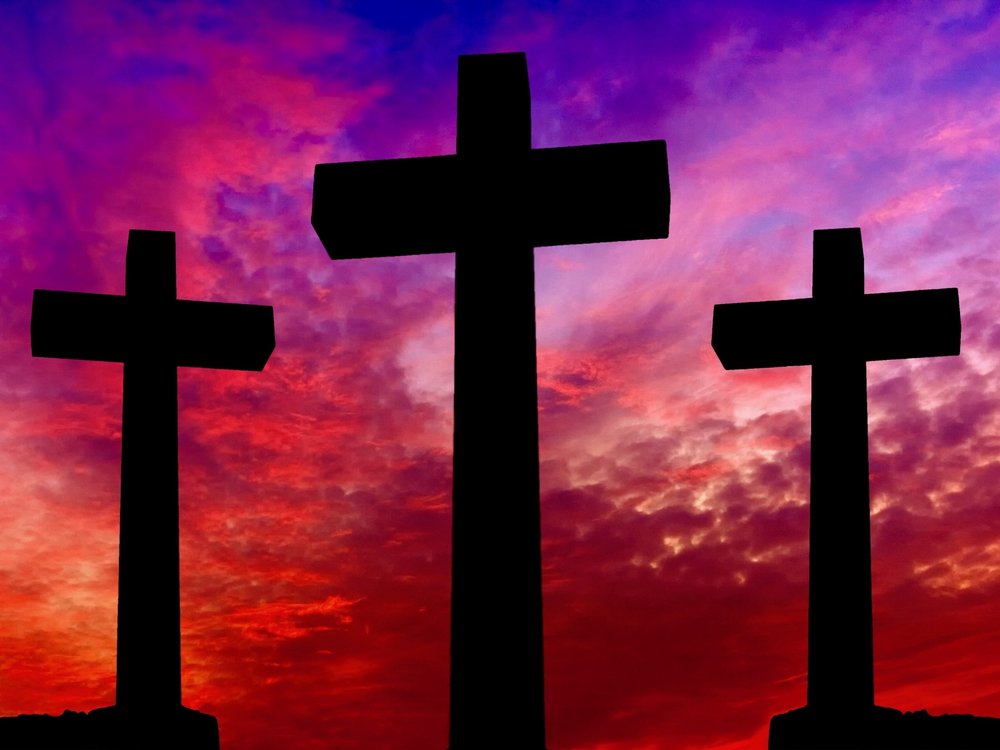
Photo by WOLF AVNI / Shutterstock.com
Disclosure: This post may contain affiliate links, meaning Beautiful Christian Life LLC may get a commission if you decide to make a purchase through its links, at no cost to you.
Have you ever had a song from childhood waft through your mind, surprising you with its evocative power? I recently heard an evangelist describe the profound influence his grandmother had on his life by singing hymns to him as a child. As an adult, when he was struggling with depression and alcohol abuse, he would phone her to sing those songs. This brought the music buried in his heart to the surface to set him upright. God used musical memory to deliver him. Through the words of Christ’s love sung by his grandmother, the Lord brought this man back to love and serve him in evangelistic music ministry.
A Distant Memory: Recovering the Language of Beauty
This story has its corollary in what has happened with the language of beauty in the West. We might say that there is a song from our distant past that wafts through our minds, evoking memories of a time when our civilization had the vocabulary of beauty. Today, we have trouble describing why something is beautiful with clarity. We struggle to describe beauty in terms other than our own subjective experience. We might say, “I like that music or painting,” but we can’t explain why. The song of beauty has become muted by relativism in our time. We may even struggle to explain why the Lord is beautiful. But there are notes from the past that we can recover to express an understanding of beauty in a deeper way and, therefore, increase our knowledge and love for the beauty of God.
Recovering the language of beauty is important because God is the source of beauty, just as he is the source of goodness and truth. In a prior post, I described some of the various notes within the song of beauty. That article followed harmony, which has been considered a norm of beauty since classical antiquity. In this series of articles, I will explore other dimensions of beauty in order to trace their origins in God and how they are manifested in his world, his church, and in the Christian life. Our goal is to find encouragement to imitate the pattern of God’s beauty in everything we say, think, and do.
The Vocabulary of Beauty: Diversity and Unity
Not surprisingly, there is an integrity to the norms of beauty because they are grounded in the nature of God, who is perfect in his integrity. In addition to harmony, another norm of beauty that has been recognized since ancient times is diversity and unity. Although all the dimensions overlap, it is helpful to examine each one carefully.
Harmony connotes symmetry and a fitting together of parts. In music, harmony is achieved when there is a “just proportion of sound or consonance.” The word harmony conveys “concord or agreement” as when different parts come together to form a whole that has “a kind of symmetry of style and character” (Webster Dictionary). Harmony is pleasant to hear in music, to see in the arts, and to read in literature and poetry. It is also pleasant when people live in harmony. It is good when “peace and friendship” are cultivated among us: “Behold, how good and pleasant it is when brothers dwell in unity!” (Ps. 133:1).
Diversity and unity also convey concord and agreement. These words, however, communicate an important emphasis on how elements varying in degree or likeness are one. Attending closely to diversity and unity in the Godhead, in nature, and in the church helps us stand in awe and wonder before our Triune God and his work in creation and redemption.
Diversity and Unity in the Godhead: The Beauty of the Trinity
The foundation for our understanding of how diversity and unity are standards of beauty lies in the beauty of the Trinity. The Bible clearly teaches that God is one in three. Every time we recite the Apostles’ Creed, we proclaim our belief in the Triune God.
Confessional statements that summarize what the Bible teaches about the Trinity are helpful for meditating on diversity and unity in the Godhead.
“In the unity of the Godhead there be three persons, of one substance, power, and eternity: God the Father, God the Son, and God the Holy Ghost.” (Westminster Confession of Faith, II.3)
“…we believe in one God, who is one single essence, in whom there are three persons, really, truly, and eternally distinct according to their incommunicable properties—namely, Father, Son, and Holy Spirit.” (Belgic Confession, Article 8)
The Holy Spirit “is the third person of the Trinity—of one and the same essence, and majesty, and glory, with the Father and the Son. He is true and eternal God, as the Holy Scriptures teach us.” (Belgic Confession, Article 11)
Note the words used to describe God: unity; single essence; one substance; three persons, really, truly, and eternally distinct. This is the lexicon of beauty because it is the lexicon of God in three persons, blessed Trinity.
Diversity and Unity in Creation: The Beauty of God’s World
Many churches pray the Gloria Patri in worship:
Glory be to the Father, and to the Son: and to the Holy Ghost;
As it was in the beginning, is now and ever shall be: world without end. Amen.
This prayer is profoundly helpful in grounding our minds and hearts in Trinitarian reality. It is so comprehensive in terms of time, that we rise from our knees to see diversity and unity in all of creation and in the new creation.
Scripture teaches that from the beginning God reveals himself to all men through creation. “The heavens declare the glory of God” (Psalm 19:1). As the original artist, the Creator, who is invisible, reveals himself through the visible medium of the created order (Romans 1). With beauty grounded in the nature and character of the Triune God, we would expect to observe the facets of beauty in the natural world he created.
My home state of Oregon is diverse in its landscapes, but there is also a unity of scale or proportion that can be described as grand. The Columbia River Gorge is a natural wonder, full of diversity of light and atmospheric mystery while maintaining an integrated whole. In exploring the Columbia Gorge, one experiences seemingly infinite variety across the seasons. Even hourly, the cloud and light patterns can shift dramatically to cast shadow and color on the dense forests and waterfalls framing the great Columbia River. This is just one example of how creation evidences God’s beauty in its diversity and its unity—its harmony of the parts into a glorious entity.
The diversity and unity of creation reflect God’s Triune glory. In the hymn of doxology to the glory of Jesus Christ as Creator and Redeemer found in Colossians 1:15-20, Paul speaks of Christ’s supremacy in creation.
He is the image of the invisible God, the firstborn of all creation. For by him all things were created, in heaven and on earth, visible and invisible, whether thrones or dominions or rulers or authorities—all things were created through him and for him. And he is before all things, and in him all things hold together” (Col. 1:15-17)
Christ is preeminent over his diverse creation. He is also the one who sustains creation, unifying it by his power.
Diversity and Unity in the New Creation: The Beauty of the Church
Having defeated sin and death at the cross, Christ is creating a new humanity, of which he is the head. (Colossians 1:18.) The church is to be both diverse and united to reflect the beauty of the Trinity.
God’s original design for humanity shows diversity and unity. In Genesis we learn that God created humanity to bear his image, uniting both male and female in the dignity of divine image-bearing.
So God created man in his own image,
in the image of God he created him;
male and female he created them. (Gen. 1:27)
In redeeming mankind, Christ is building his church to be his beautiful bride (see Psalm 45). The new humanity in Christ is called to reflect the image of the Divine in all his beauty as God conforms us to the image of his Son.
In his book The Beautiful Community, Irwyn L. Ince Jr. applies how we are to imitate the Trinity in the church:
As his people, when we are mutually glorifying, speaking, and acting in ways that enhance the reputations of one another, striving to bring praise and honor to others, exhibiting a mutual deference, a willingness to serve one another, and submit to one another—especially across lines of difference—we are imaging God’s beauty. (p. 55)
Another work on the topic of diversity and unity in the church is an address entitled “Membership” by C.S. Lewis. In this essay, Lewis counters both individualism and collective uniformity as standards for church membership. Instead, he advances the Pauline doctrine of the church. The New Testament teaches that “members” mean organs, not items or units in a homogenous class (Weight of Glory and Other Essays, p. 110.) Lewis distinguishes the definition of our membership in the church from membership in a club, or a military institution, or any group that consists of “members of a class.” As members of a church, the apostle Paul uses the term in the sense of organs, “things essentially different from, and complementary to, one another…” Lewis advances the thesis that “the Christian is called not to individualism but to membership in the mystical body” (p. 110), adding that “those who are members of one another become as diverse as the hand and the ear” (p. 113).
Diversity and Unity: Imitating the Beauty of God
Often in church cultures, there is a pressure to be conformed to one another instead of to Christ. We may ask ourselves, “Is it okay to be different in my church, either by disposition or station in life? For example, can an introvert thrive in our fellowship just as much as an extrovert? Can a single person fit in just as well as married couples?” Pondering God’s design for diversity and unity is helpful in answering these common questions. The goal of church membership is not conformity to one another but instead to the perfect divine image-bearer, Jesus Christ. C.S. Lewis notes that, “A row of identically dressed and identically trained soldiers set side by side…are not members of anything in a Pauline sense” (p. 110.)
Perhaps in applying the norms of beauty to our Christian lives, we might seek to support fellow church members in their unique gifts and dispositions. By deferring to others and helping them to serve, we can imitate God. We can mortify pride while also being confident that God has done a marvelous work in making and redeeming each one of us (see Psalm 139). Having been freed by Christ from sin and punishment, we can experience freedom to be ourselves to Christ’s glory. There is no need to adopt the “preferred personality type,” or to try to fit into the group for the sake of acceptance.
Holy living according to biblical standards takes a variety of expressions based on where God has placed us. Each of us passes through a variety of stations in life over the course of our earthly pilgrimage. Service in each stage may look quite different based on where God has ordained that we serve in his world and in his church. Again, the goal is not uniformity to one another. The goal is to glorify Christ through loving obedience.
By recovering the language of beauty, we can work to bring back the music that awakens our sensibilities to the beauty of God, his world, and his church. In reflecting on diversity and unity in the Godhead, ask yourself, “How can I magnify the beauty of God in my life by this standard?” In so doing, you may begin to hear the music of the new creation.
Related Articles:
from Blog - Beautiful Christian Life https://ift.tt/ur5jwSB
via IFTTT






